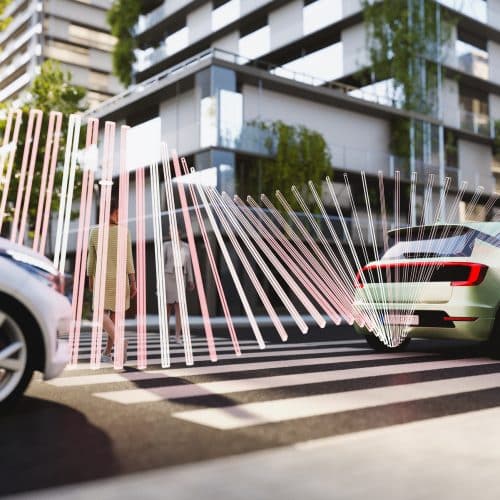Winter in Nashville, TN doesn’t typically bring a lot of snow and ice, but it can bring changes to driving conditions. As any Tennessean knows, having great weather early in the morning doesn’t necessarily predict how the weather will be the rest of the day, so it pays to be ready for whatever may come your way.
Are you prepared to drive in Nashville’s winter weather?
The Wolf Pack® is here to protect you with the most up-to-date winter driving tips. Read on to learn how you can keep yourself and your passengers safe this season by preparing your car, making sure that you have the supplies you need, and knowing the best practices on the road.

BEFORE YOU GO
Whether you’re headed out on a short drive to work or preparing for a road trip, make sure you take these steps before leaving the house.
Wake up a little earlier. Give yourself extra time to get ready and reach your destination. Keep in mind that it may still be dark as you head out on your drive, especially if you need to start early in the day.
Clear all frost off your vehicle. You may be able to start your engine and wait for your windows to defrost naturally or, on particularly cold days, scrape your windows clear. A credit card or your driver’s license will work in a pinch, but be careful not to damage it.
Remember: never put your heat on full blast against a completely frozen windshield, or you may end up with a crack across the glass!
Start your car early. Let your car run for a few minutes before you jump behind the wheel.
Giving it time to warm up will make your drive more comfortable, clear away frost, and prevent fogging.
IN YOUR CAR
During the winter months, make sure your car is properly stocked in case an emergency situation arises.
A blanket will help you keep warm if you break down.
Gloves protect your hands from the cold if you need to get out of the car for any reason.
An emergency kit, including jumper cables, flares, a tire pump, and a flashlight, will be helpful if you end up having an accident, a flat tire, or mechanical problems.
A phone charger with a car adapter is a necessity these days. If your car breaks down or you’re in a wreck, you want to have a fully charged phone to call for help.
An ice scraper is a good tool to have for long trips, especially if you’ll be driving through the night, because you never know when frost will take over your windshield.
A first aid kit can help you quickly deal with minor injuries. For those with children in the backseat, this can be especially useful if they are hurt during the drive.
UNDER THE HOOD
Not only should you prepare the contents of your car for cold weather, but you should also take care of some basic maintenance to be sure that your vehicle operates safely and effectively.
Check to make sure your battery is fully charged. Take it into the shop at the beginning of the season and have the battery checked. Cold weather can cause your battery to drain faster, leaving you stranded when you least expect it.
Keep a full tank of gas. Keeping the tank full is better for your fuel pump and reduces the risk of freezing, and, of course, no one wants to run out of gas in freezing temperatures.
Check your oil regularly. Most people don’t realize that cold temperatures can affect the oil in your car. Your local auto shop can suggest an oil made specifically for winter conditions.
Keep your fluids topped up. If you’ve used water as a coolant during the summer months, make sure you refill with antifreeze before winter arrives.
ON THE ROAD
Ready to go? Follow these important road safety tips while driving to help minimize your risk of a preventable crisis situation.
Leave the air off while the engine is heating up. Until the engine gets hot your car won’t blow hot air, and keeping the air off will conserve gas.
Check your tire pressure and tread. When cold weather hits, your tire pressure can decrease. This does a number on your gas mileage and can lead to a blowout. If your treads are wearing down, it can increase your risk of sliding on icy or rainy streets.
Don’t use your windshield wipers to remove frost. This can wear them down faster or lead to damage that can prevent your wipers from clearing rain from your windshield properly.
THE WOLF PACK® IS HERE TO HELP
Were you in a car crash caused by someone else’s reckless driving in winter weather? We can help. Attorney Phil Georges is known as the “pack leader” because he protects his clients like they are members of his Wolf Pack™. He is fierce and determined to help you get every penny you’re entitled to. Contact Phillip S. Georges, PLLC today to learn more about the compensation you deserve following a winter car accident.








